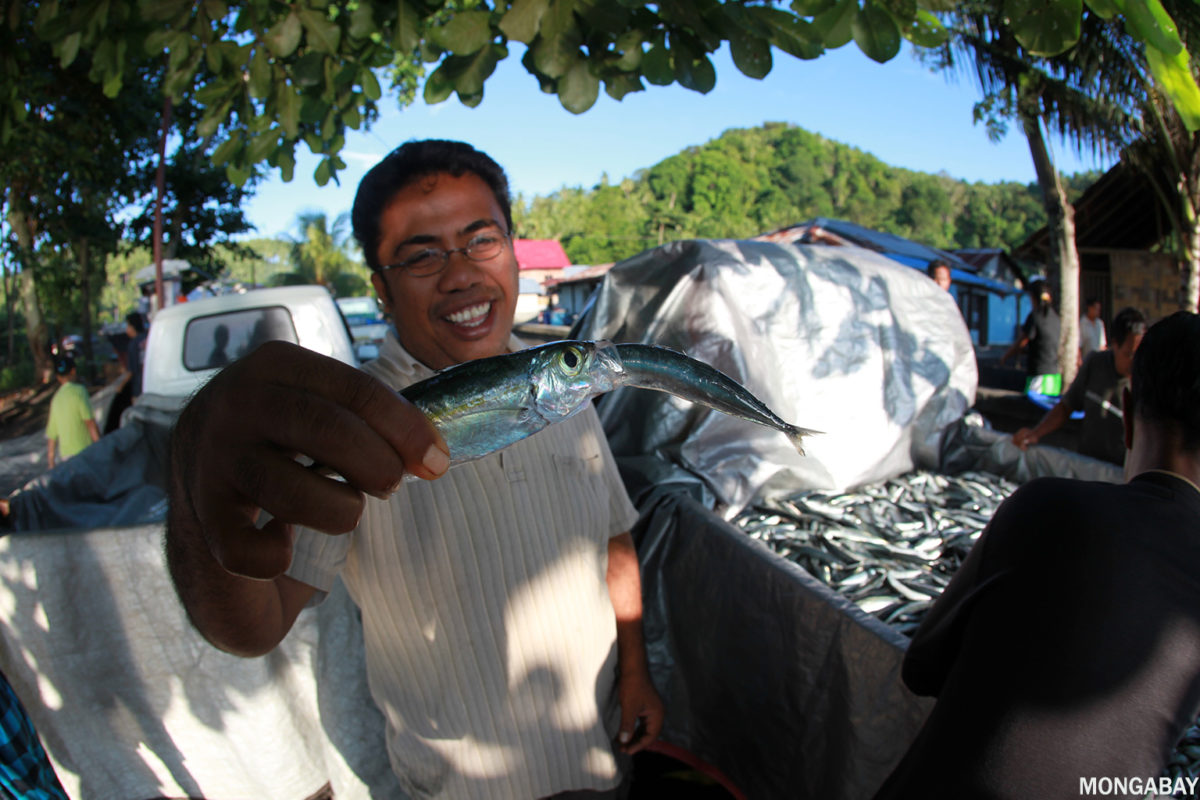It’s no secret that humanity is abusing the world’s oceans. We’re overfishing at all levels of marine food chains, we’re annihilating critical habitats from mangroves to coral reefs, and we’re polluting global seas with plastic, agricultural run-off, and carbon emissions. The challenges standing in the way of addressing these issues however are immense. At the root of it: The world’s oceans are the ultimate global commons, and as such, profits have been realized privately, but costs are borne by the public, with often the most marginalized and disadvantaged facing the greatest burdens.

But while the situation can seem daunting, there are reasons to be optimistic says oceans expert Eric Schwaab, who current serves as the Senior Vice President of Ecosystems and Oceans at Environmental Defense Fund (EDF)
“What gives me hope is the combination of awareness, commitment and ingenuity coming from many different parts of the world,” Schwaab told Mongabay during a recent interview. “Despite all our environmental and geopolitical challenges, the oceans are providing solutions. From their carbon cycling and storage capacity to their ability to help sustainably feed the world, people are focusing in new ways on ocean strategies. And they are bringing new understanding, new technologies and new commitments to working together on solutions.”
“We are moving from a time of comparatively few ocean advocates to a time of global awareness that our survival is linked to healthy oceans.”
Schwaab’s perspective is rooted in his long experience in fisheries management, having served in a variety of non-profit and government roles, including the head of NOAA’s National Marine Fisheries Service (NMFS), where he helped implement wider adoption of science-based catch limits and catch shares and represented the U.S. in international negotiations over fisheries and ocean management. At EDF, Schwaab leads the Oceans and Ecosystems Programs.

Schwaab says the key is developing comprehensive ocean protection strategies that work to address the tragedy of the commons and deliver benefits to a wider array of stakeholders, including groups that are often marginalized or disadvantaged by business as usual approaches.
“EDF strongly supports designation of protected areas as a key component of comprehensive ocean protection strategies. We also firmly believe that protected areas must be accompanied by sustainable management of fishery resources outside of protected areas. Where fishers see the benefits of protected areas to overall stock abundance, they help ensure compliance and sustainability of benefits,” he said. “The need for comprehensive management approaches also extends to the need for protection of species like whales, sharks and turtles outside of designated protected areas.”
As with effective catch share systems, the most effective protected areas are developed with full engagement of local communities most affected by designations. Participation of local communities in the design and designation process takes advantage of local knowledge, ensures viability of coastal community livelihoods and maximizes buy-in to ensure compliance and durability of the designation.”
Climate change, adds Schwaab, is a complicating factor that ocean conservation efforts will need to navigate.
“The question is, how do we manage fisheries in the midst of climate change? One thing is for sure: we can’t do the same things that we’ve done in the past. That is a recipe for disaster.”

Schwaab spoke about how to increase the resilience of fisheries to climate change; U.S. oceans policy, including what the country has gotten right and wrong; and more in a recent interview with Mongabay.

